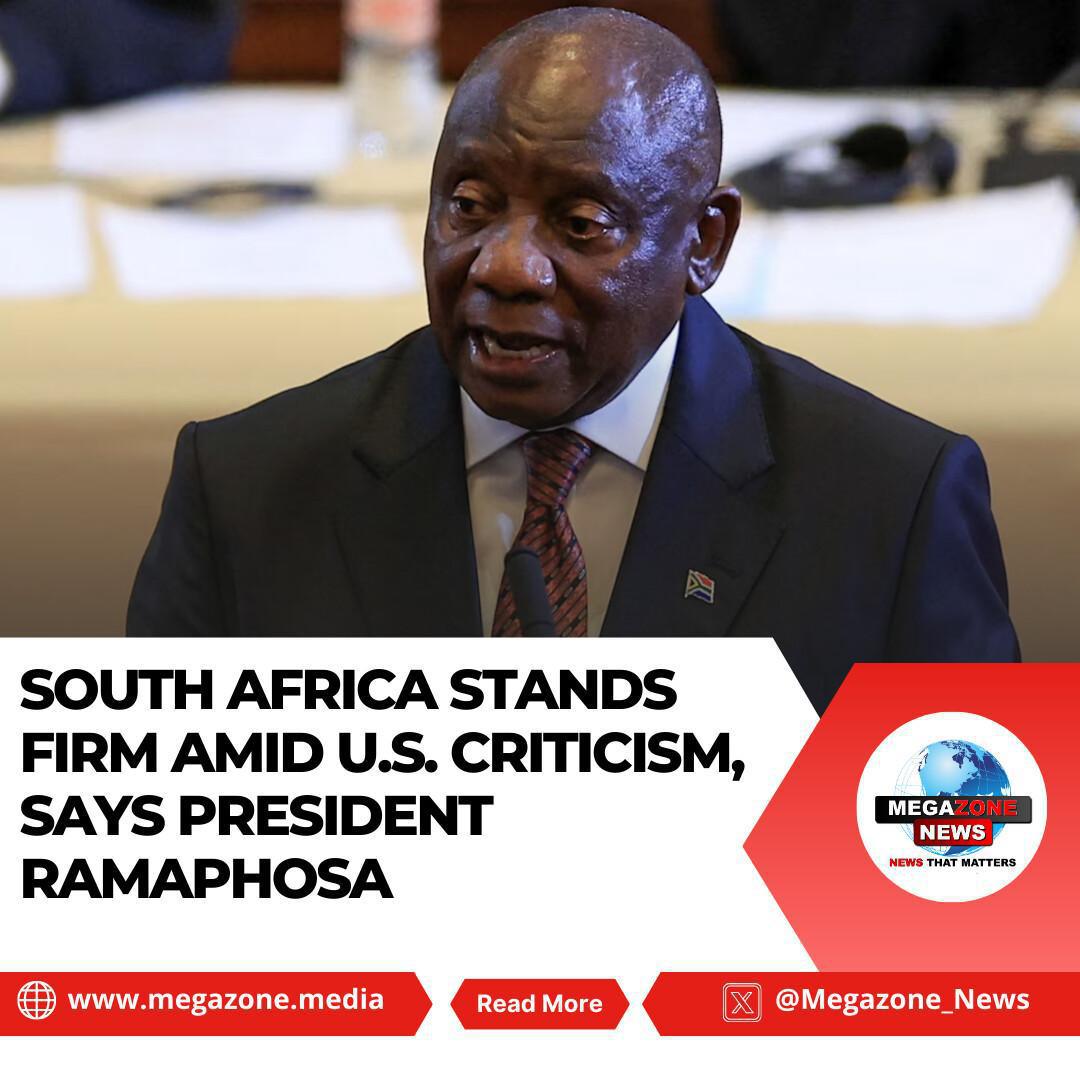President Cyril Ramaphosa declared that South Africa "will not be bullied" in his State of the Nation Address (SONA) on Thursday, responding to criticism from senior U.S. officials, including former President Donald Trump.
“We are witnessing the rise of nationalism, protectionism, the pursuit of narrow interests, and the decline of common cause,” Ramaphosa stated. “This is the world that we as South Africa, a developing economy, must now navigate, but we are not daunted. We are, as South Africans, a resilient people, and we will not be bullied.”
Tensions Over Land Reform
Trump recently accused the South African government of "confiscating" land following the signing of an expropriation act last month, a claim Pretoria has dismissed as "misinformation." The law allows for "nil compensation" in specific cases where land is expropriated in the public interest.
Land ownership remains a highly sensitive issue in South Africa, where the majority of farmland is still in white ownership three decades after apartheid. The government faces mounting pressure to implement reforms.
Trump, who is advised by South Africa-born billionaire Elon Musk, also alleged that the South African government was “treating certain classes of people very badly” and suggested cutting U.S. funding to the country. Musk added fuel to the controversy by calling South Africa’s property laws “openly racist” in a post on his social media platform, X.
U.S. Officials Boycott G20 Meeting
Further straining relations, U.S. Secretary of State Marco Rubio announced that he would not attend the upcoming G20 summit in South Africa, accusing the host government of promoting an “anti-American” agenda.
“South Africa is doing very bad things. Expropriating private property. Using G20 to promote ‘solidarity, equality, & sustainability’,” Rubio wrote, dismissing these initiatives as distractions from America’s national interests.
Domestic Issues: Water and Energy Crises
Ramaphosa also addressed South Africa’s pressing domestic concerns, including the ongoing water crisis. “It is impossible to live without water, and it is impossible for the economy to grow without water,” he said, promising urgent government action to resolve the crisis, similar to efforts aimed at stabilizing the country’s electricity supply.
While the president claimed energy reforms were yielding results, rolling blackouts—after a 300-day pause—resurfaced last week, raising fresh doubts about progress. “We now need to put the risk of load shedding behind us once and for all,” he assured lawmakers.
Skepticism Over Infrastructure Promises
The president unveiled a R940 billion infrastructure investment plan to modernize roads, ports, and airports over the next three years. However, opposition parties remain unconvinced.
“He talks about giving R1 billion for disaster relief in KwaZulu-Natal, yet houses are still not built,” said Economic Freedom Fighters (EFF) leader Julius Malema. “So, whatever R900 billion he’s talking about, you must know he is just passing time.”
Similarly, uMkhonto weSizwe Party spokesperson Nhlamulo Ndhlela criticized the lack of job-generating projects. “Give me one infrastructure project that has actually had proper traction in this country. None. 62% of our youth are unemployed,” he argued.
National Health Insurance Plans Move Forward
Ramaphosa also announced progress in preparing for the National Health Insurance (NHI) rollout. The first phase will involve developing a unified electronic health record, setting up advisory committees on health technologies and benefits, and creating an accreditation framework for service providers.
Government Unity Amid Criticism
Despite opposition skepticism, the ruling African National Congress (ANC) and its partners in the Government of National Unity (GNU) defended the SONA as a practical and clear roadmap.
ANC Secretary-General Fikile Mbalula assured that concerns around the NHI strategy would be addressed through an advisory council.
The Democratic Alliance (DA), while previously critical of SONA, acknowledged some of its recommendations were reflected in the final speech. DA leader John Steenhuisen emphasized the urgency of economic growth and job creation. “We have four years left of the GNU to demonstrate to South Africans that we can create jobs, grow the economy, and invest in infrastructure that leads to economic development,” he said.
As South Africa grapples with international criticism and domestic challenges, Ramaphosa's administration faces mounting pressure to turn promises into tangible results.


